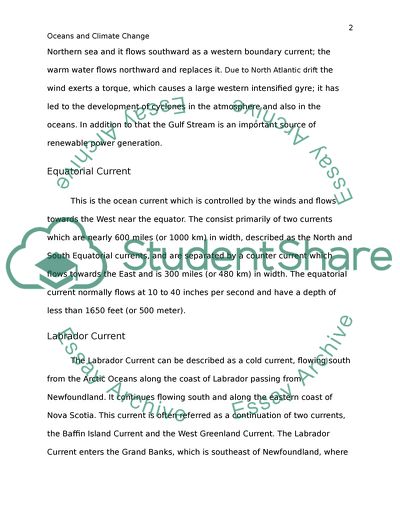Cite this document
(“Oceans And Climate Change Essay Example | Topics and Well Written Essays - 1250 words”, n.d.)
Oceans And Climate Change Essay Example | Topics and Well Written Essays - 1250 words. Retrieved from https://studentshare.org/geography/1587048-oceans-and-climate-change
Oceans And Climate Change Essay Example | Topics and Well Written Essays - 1250 words. Retrieved from https://studentshare.org/geography/1587048-oceans-and-climate-change
(Oceans And Climate Change Essay Example | Topics and Well Written Essays - 1250 Words)
Oceans And Climate Change Essay Example | Topics and Well Written Essays - 1250 Words. https://studentshare.org/geography/1587048-oceans-and-climate-change.
Oceans And Climate Change Essay Example | Topics and Well Written Essays - 1250 Words. https://studentshare.org/geography/1587048-oceans-and-climate-change.
“Oceans And Climate Change Essay Example | Topics and Well Written Essays - 1250 Words”, n.d. https://studentshare.org/geography/1587048-oceans-and-climate-change.


